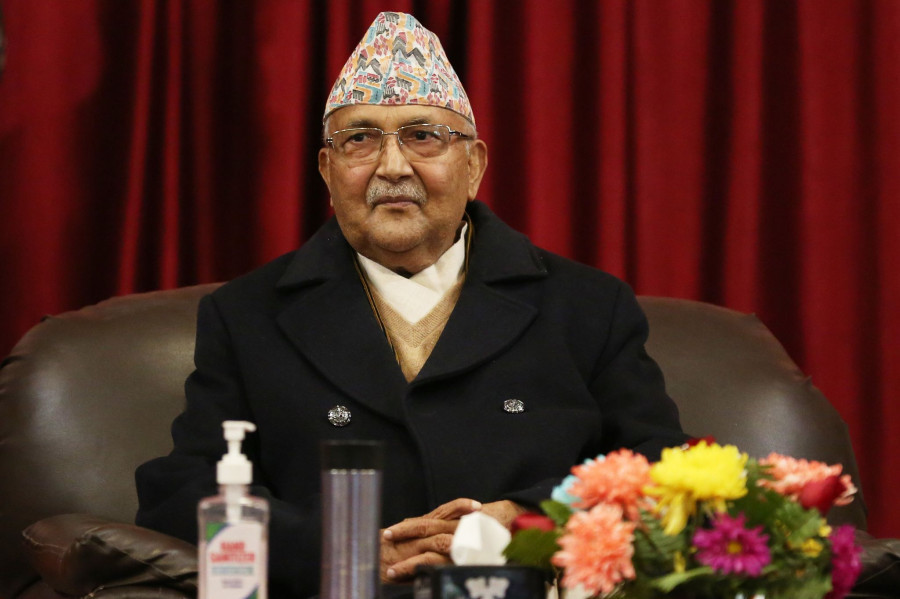Editorial
Electoral eyewash
With polls in mind, Prime Minister KP Oli has been crossing the moral boundaries of democratic politics.
Prime Minister KP Oli is acting as if he is already on the great election campaign trail. Why would he not? The elections, if they end up being conducted as planned—are less than three months away. Even as the fate of the elections remains unclear, Oli is on an inauguration spree, in the hope that they would translate into votes. His motto seems to be to inaugurate everything and visit every place if they promise a few votes in the planned elections.
As the Election Commission remains tight-lipped about whether the prime minister of a caretaker government is allowed to inaugurate infrastructure projects just a few months before the elections, the prime minister seems to care little as to whether he has the moral authority to do so.
Last week, January 25, Oli inaugurated a bridge over the Rapti river, the foundation of which had been laid by Dahal in 2017, in Lumbini Province. Meanwhile, Oli's acolyte and provincial chief minister Shankar Pokhrel promised over half a dozen projects in and around Dang district. On Friday, Oli awarded the tender to develop the 679-megawatt Lower Arun Hydropower Project to India's Satluj Jal Vidyut Nigam Limited.
On Saturday, Oli inaugurated the city hall of Bharatpur Metropolitan City and the ring road in Bharatpur Municipality, in what could be considered a direct affront to his rival in the ruling Nepal Communist Party, Pushpa Kamal Dahal. Oli even made it a point to address a mass gathering in the constituency held by Dahal.
What's more, Oli asked why Dahal had not spoken a word on building a Ram Temple in Ayodhya, the constituency of Dahal and the supposed birthplace of the mythical king. This was only one of Oli's recent attempts at hitting the religious nerves of the Nepali people as the planned election dates draw closer. Last Monday, he performed a special puja at the Pashupatinath Temple, the revered Hindu pilgrimage site, and then instructed officials of the Pashupati Area Development Trust to develop the temple as a holy place for ‘adherents of Vedic Sanatan Dharma’.
While the prime minister's visit to the religious site brings into question his commitment to secularism, what is of greater concern is whether he is morally right to visit it—and provide it with millions of rupees worth of support—when the elections have already been announced. It wouldn't be surprising if Oli begins questioning the very legitimacy of secularism in the next few weeks to cater to the religious sentiments of the majority Hindu population.
Inauguration of infrastructure projects and catering to religious sentiments, however, are only the most visible political manoeuvrings of the prime minister. Even the government's handing out of identity cards—that come with no benefits—to the kin of people who disappeared during the Maoist insurgency seems to be the result of electoral calculation rather than a genuine commitment to complete the transitional justice process. No wonder that Oli has suddenly become interested in the whereabouts and welfare of former Maoist combatants.
In democratic politics, moral boundaries trump short-term electoral calculations and are to be created and nurtured by the leaders in the long run. Prime Minister KP Oli and his government would do well to stop exploiting citizens' religious sentiments, development rhetoric, and various outstanding issues in the country as an eyewash for the upcoming elections.




 13.12°C Kathmandu
13.12°C Kathmandu














